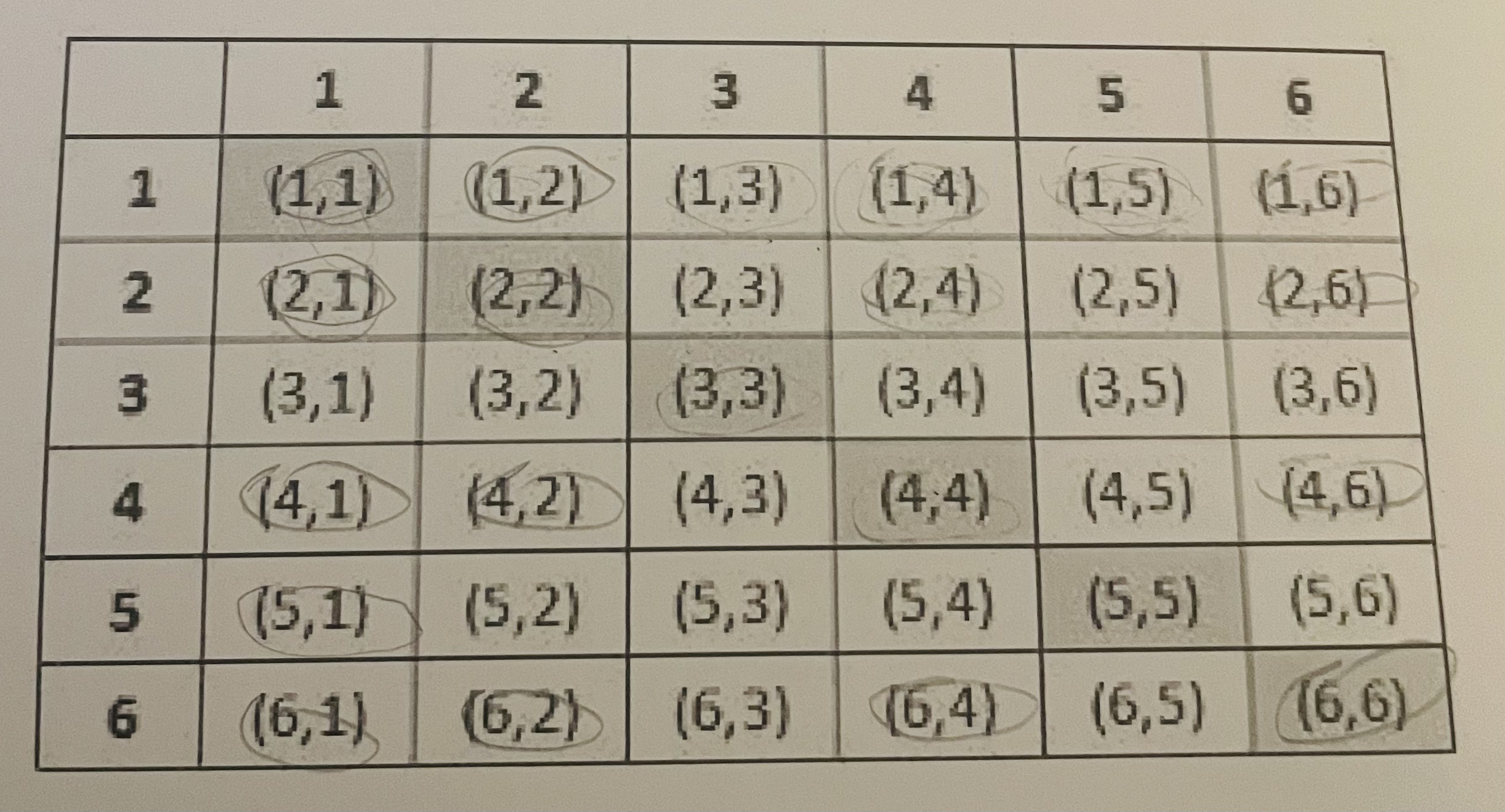MA-105: Module 4 Vocabulary (Probability, Fundamental Counting Principle, Permutations, Combinations)
1/21
Earn XP
Description and Tags
Probability, Fundamental Counting Principle, Permutations, Combinations
Name | Mastery | Learn | Test | Matching | Spaced | Call with Kai |
|---|
No analytics yet
Send a link to your students to track their progress
22 Terms
What is the Fundamental Counting Principle?
A strategy used to count the number of possible outcomes in a situation
Example: “The model of car you are thinking of buying is available in ten different colors and four different styles. In how many ways can you order the car?”
Answer: 40 (10 times 4)
What is a permutation?
What is a combination?
When is a permutation used?
What is the permutation formula?
P = n! / r!(n - r)!
n = number of total objects
r = number of objects selected
Solve this FACTORIAL problem:
In how many distinct ways can the letters of the word TELEVISION be arranged?
There are 10 letters in the word “television”.
There are TWO E’s and TWO I’s
10! = 3,628,800
2! (for both the E’s and the I’s) = 2
3,628,800 divided by 2 (for the E’s) = 1,814,400
1,814,400 divided by 2 (again, for the I’s) = 907,200
THUS, The letters of the word TELEVISION can be arranged in 907,200 distinct ways.
How many cards are there in a deck?
52 cards
How do you find the probability of EITHER (one or the other) option being chosen?
(E.g.: Find the probability of drawing either a diamond OR a club card.)
Find the probabilities of selecting each option, and ADD them
Example: Probability of drawing a club = 13/52 (52 total cards in a deck, 13 club cards)
Probability of drawing a diamond = 13/52
13/52 + 13/52 = 26/52 —> ½ simplified

Memorize this! The amount of possible combinations for a single die! :)
What is the meaning of this: ! character?
As in: 5!
This symbol means: “factorial”.
Used to denote an integer and all of the integers below it.
Example: 5! means 1 × 2× 3 × 4× 5
When is ! (factorial) used?
Used to find how many ways objects can be arranged in order.
Example: Find the number of different finishes for a race with 9 runners.
(Assume no ties occur.)
Solution: 9! (equals 362,880)
Solve this problem when: b) Repetitions ARE allowed
Problem: How many 10-digit license plates can be made using the digits 0,1,2,3,4,5,6,7,8,9 if an odd digit must be first?
Answer:
An odd number MUST be the first digit: There are FIVE odd numbers in this set.
5 × 10 × 10 × 10 × 10 ×10 × 10 × 10 × 10 × 10
*There are 9 spots remaining when an “odd number” is placed first!
There are 10 total digits to choose from, in total.
Remember: Repetitions ARE allowed.
Solve this problem when: b) Repetitions are NOT allowed
Problem: How many 10-digit license plates can be made using the digits 0,1,2,3,4,5,6,7,8,9 if an odd digit must be first?
An odd number MUST be the first digit: There are FIVE odd numbers in this set.
5 × 9 × 8 × 7 × 6 ×5 × 4 × 3 × 2 × 1
*Once 5 is placed first, all of the following spaces denote the number of TOTAL choices available, in DESCENDING order.
In other words, the “tenth place” spot is already taken —> continue to count down from 10.
How many face cards are in a deck?
12 face cards
How many spades are in a deck?
13 spades
How many aces are in a deck?
4 aces
How many king cards are there in a deck?
4 kings
How many queen cards are there in a deck?
4 queens
How many jacks are there in a deck?
4 jacks
How many diamonds are in a deck?
13 diamonds
What formula/format is used when determining the odds of something happening? (“Odds in favor of”)
Odds = always a ratio!
Formula = (odds of something occurring / (probability of event not occurring)
Example: Odds of winning a game are 1/4.
Odds of NOT winning are 3/4.
Odds in favor = ¼ / ¾ = 1/3 —> 1:3 chance of winning
How do you calculate the probability of something happening?
Probability formula: number of favorable outcomes / total number of outcomes
Example problem: “If the odds that the Victoria Royals will win their next game are 2 to 5 in favour, what is the probability that they will win their next game?”
Number of favorable outcomes = 2
Total number of outcomes = 7 (2 + 5)
Probability they will win: 2/7